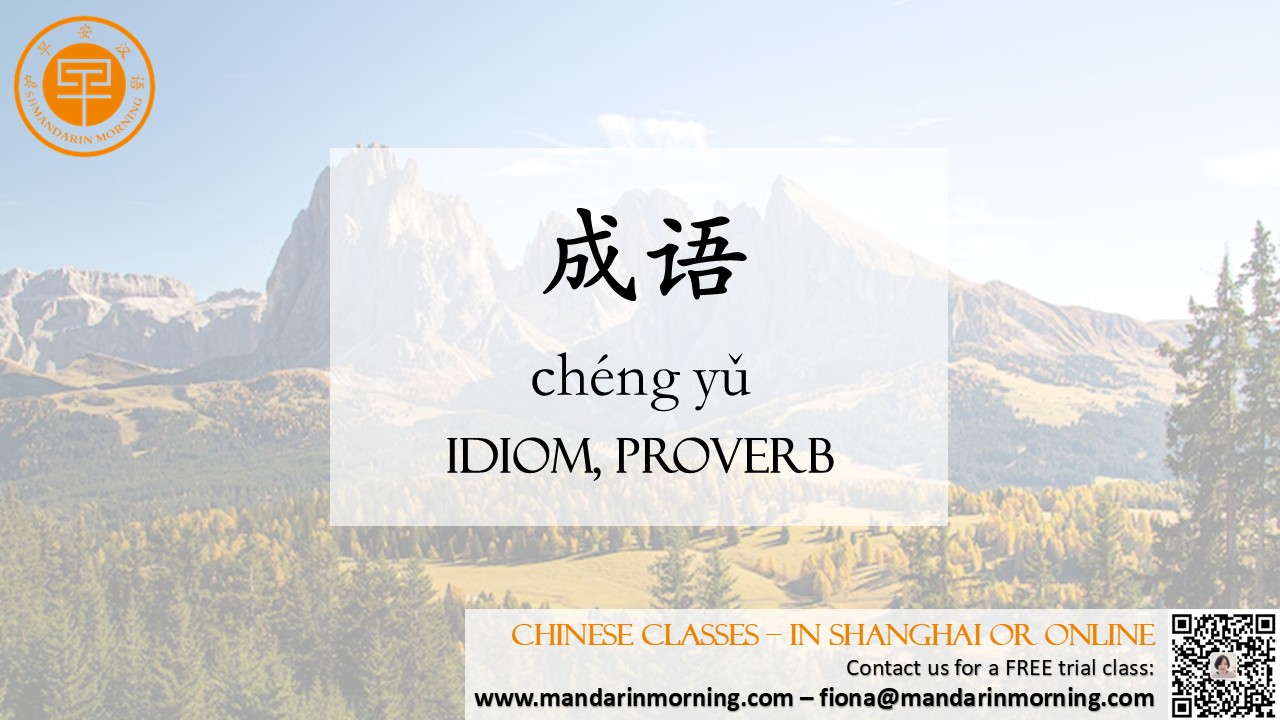【Learn Chinese】Exploring Popular Chinese Chengyu (Part 1) |
| Chinese culture is rich and profound, and one of the most fascinating aspects of this culture is the use of "chengyu" (成语), which are four-character idiomatic expressions. These chengyu often originate from ancient texts, historical events, or classical literature, and they are widely used in daily conversations to convey complex ideas succinctly and vividly. In this article, we will explore the first five of ten popular chengyu that Chinese people often use in their daily lives. Want to know more? Read part 2!  1. 塞翁失马,焉知非福 (Sài wēng shī mǎ, yān zhī fēi fú) This chengyu literally means "The old man at the frontier lost his horse; how can one tell whether it is not a blessing in disguise?" It originates from a story in the "Huainanzi" (淮南子), a text from the Western Han Dynasty. The story tells of an old man who lived near the border. One day, his horse ran away, and everyone thought it was a misfortune. However, the old man remained calm and said, "How can one tell whether it is not a blessing in disguise?" Later, the horse returned with a fine steed from the neighboring country. This chengyu is used to express the idea that a bad situation may turn out to be good in the end. It encourages people to stay optimistic and not to jump to conclusions too quickly. 2. 对牛弹琴 (Duì niú tán qín) Literally translated as "playing the lute to an ox," this chengyu comes from a story in the "Kongcongzi" (孔丛子), a text from the Warring States Period. It tells of a man who played beautiful music on his lute, but the ox he played to showed no interest. This chengyu is used to describe a situation where someone tries to explain something to someone who is incapable of understanding it. It is often used to express frustration when communication is futile. 3. 画龙点睛 (Huà lóng diǎn jīng) This chengyu means "to draw a dragon and dot its eyes." It originates from a story about the famous painter Zhang Sengyao from the Southern Dynasties. He painted four dragons on a wall but did not dot their eyes. When asked why, he replied that dotting the eyes would bring the dragons to life. After he dotted the eyes, the dragons flew away. This chengyu is used to describe the act of adding a crucial finishing touch that brings something to life or makes it perfect. 4. 亡羊补牢 (Wáng yáng bǔ láo) Literally meaning "mend the fold after the sheep are lost," this chengyu comes from the "Han Feizi" (韩非子), a text from the Warring States Period. It tells the story of a man who lost a sheep because of a hole in his sheepfold. His friends advised him to mend the hole, but he did not listen. Later, he lost another sheep and finally decided to mend the hole. This chengyu is used to express the idea that it is never too late to correct a mistake or to take preventive measures. 5. 杯弓蛇影 (Bēi gōng shé yǐng) This chengyu means "seeing a bow reflected in a cup as a snake." It originates from a story in the "Shuoyuan" (说苑), a text from the Western Han Dynasty. It tells of a man who saw the reflection of a bow hanging on the wall in his cup and thought it was a snake. He was so frightened that he fell ill. Later, when he realized it was just a reflection, he recovered. This chengyu is used to describe a situation where someone is frightened by something that is not real or by their own imagination. |